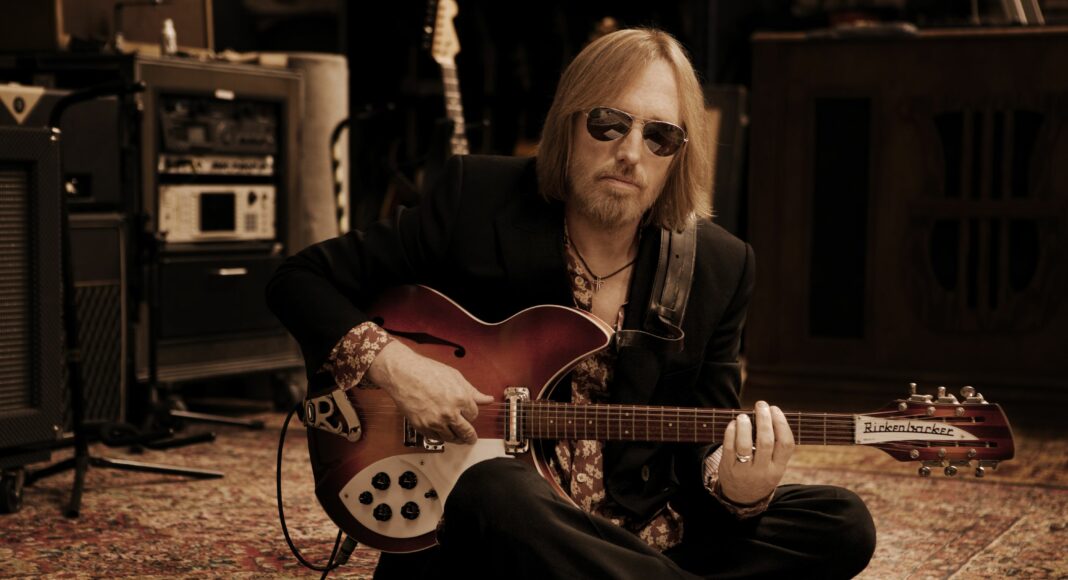One of my earliest musical memories isn’t so much a recollection as it is inherited wisdom. I have no clear memory of this, but I am told that as a toddler I would bounce around the house singing the chorus from “I Won’t Back Down.”
“You can stand me up at the gates of hell,” I would warble, “but I won’t back down.”
In the wake of Sunday night’s massacre in Las Vegas, the words seem particularly potent. If only someone had the resolve to stand up to the NRA, its almighty gun lobby and so many weak-kneed U.S. Representatives; it is they who together comprise the three-headed beast of bullshit cowboy mythology, prepper fantasies and Constitutional cherry-picking currently occupying the ninth circle of America’s own personal hell of gun violence. But we’ll leave that conversation for another time.
We’re here to talk about Tom Petty, who died Monday in Santa Monica. He was 66.
It is tempting to think that the news of the mass shooting at the Route 91 Harvest Festival might have been what finally broke Petty’s heart. As a musician and a lover of music, it is deeply troubling to think that a concert—a place where people go to experience joy and even transcendence—might be so grotesquely transformed into an epicenter of carnage. And Petty loved his fans.
In a Fresh Air segment from 2006—rebroadcast this Tuesday—host Terry Gross asked him if he ever thought about how important his songs were to the people who loved them. Petty answered by recalling his headlining slot at the Bonnaroo music festival, held in Tennessee that same year. He and his band, The Heartbreakers, were celebrating their 30th anniversary.
“There were 80,000 people there,” he tells Gross in his smoky drawl. “And they were singing ‘I Won’t Back Down’ so loud that it nearly drowned us out.”
That Sunday’s rampage occurred at a country music festival—and one named after U.S. Route 91, the former title of the street now known as Las Vegas Boulevard—seems worth mentioning. After all, Petty grew up a self-described “redneck” in Gainesville, Fla. There was always a little bit of country in Petty’s rock & roll vision, and America has always loomed large in his music.
It’s hard to hold a song like “Free Fallin’” or “Runnin’ Down a Dream” in your head without picturing this country’s myriad roads. Those sacred channels, in a sort of holy union with the automobile, allow for the uninhibited, life-changing cross-country treks that so many of us have taken or dreamt about. Our highways are pathways of deliverance, gateways to freedom. One might convincingly argue that, in truth, it was the road—the railroad, the dirt road, the paved road—that won the West. Winchester Repeating Arms be damned.
But however much the man behind Damn The Torpedoes borrowed from Americana, he gave just as much to the landscape of modern rock.
On Saturday—less than 48 hours before reports of his death began to hit the web—The Shins demonstrated the length of Petty’s shadow at The Greek Theatre in Berkeley. In the midst of the band’s closing number, “Sleeping Lessons,” frontman James Mercer broke into a verse of “American Girl.”
Though the ramshackle pop tunes of one of indie rock’s most revered bands might seem far removed from Petty’s catalog, it all makes perfect sense. Indeed, how can we imagine the tightly coiled arrangements of bands like The Strokes, LCD Soundsystem or The Yeah Yeah Yeahs without Petty? The same goes for the kind of colloquial, narrative lyricism of a songwriter like Mercer.
Petty’s brand of no-frills pop rock is analogous to Steinbeck and Hemingway. His chord changes and licks are spare—but not without style. His lyrics are delivered in plain vernacular, though there is an undeniable poetry to them.
There are so many examples of this kind of concise writing in Petty’s cannon, but in the wake of this weekend’s tragedy, there is one that rings especially loud.
“God, it’s so painful—something that’s so close, and still so far out reach.”



